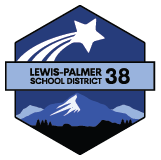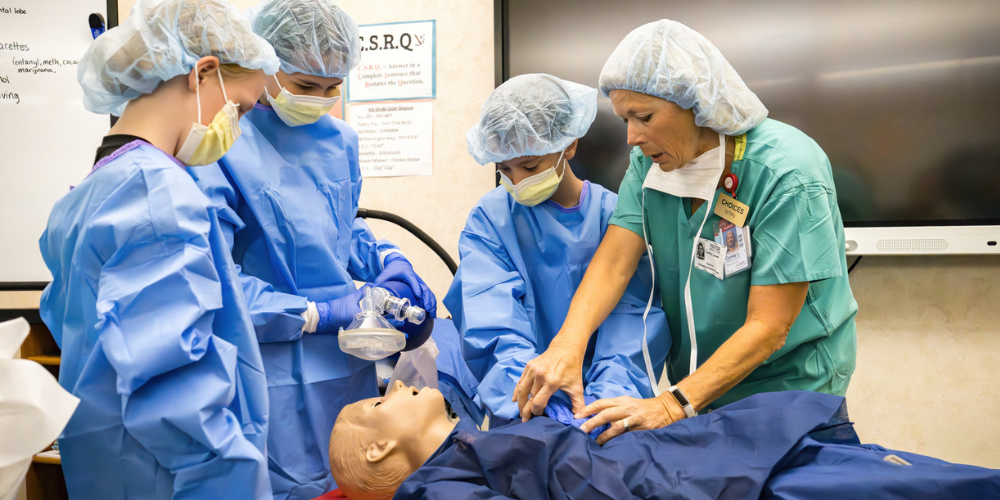Prairie Winds Elementary students recently learned about the importance of good decision making and the real-life consequences of bad-decision making thanks to the efforts of some dedicated local healthcare providers.
The UCHealth Trauma Injury Prevention for Schools (TIPS) Program covers a range of topics to educate students on things like healthy food and healthy behaviors, drug use, alcohol use, accidental and non-accidental trauma, recognition of emergencies, and how to self-advocate. There are three levels of classes in the program that are curated for different age groups. The program was offered to sixth grade students at Prairie Winds.
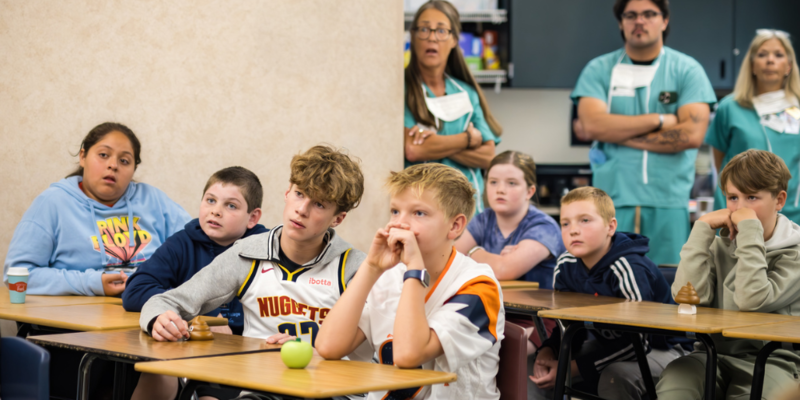
The program began in a classroom setting with interactive discussion to help students understand what physical trauma is, how it affects different systems in the body, and how those systems react to trauma. The students were engrossed in the discussion and provided thoughtful, intelligent responses to the team of trauma nurses, EMTs, and other medical providers who delivered the presentation.
The discussion eventually led to the topic of decision making and the consequences of poor decision making. This discussion then led to a fictional scenario that showed the students potential real-life consequences of bad decisions. The students then stepped into the shoes of the nurses and surgeons as they dealt with the physical trauma suffered by the teen victim in the fictional scenario.
A medical mannequin was brought in as the students were rushed into medical gear as they dealt with the 'patient' in the roles of EMT and then eventually as nurses as surgeons. Once in the 'operating room,' students were provided with medical equipment (under very close supervision) and were required to make an incision in the patient's abdomen and remove and foreign object from the patient's body. The realistic scenario included artificial blood spurting out of the patients body. Once the foreign object was removed, the students then had to suture or staple the patient's wound back together.
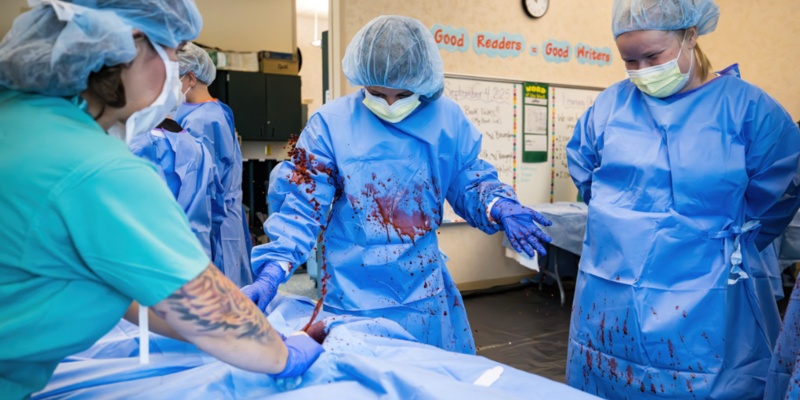
The 'surgery' was then followed by a thoughtful discussion on the scenario the students participated in, as well as life and death. The students then were shown both good and bad examples of what the medical staff said was the hardest part of their job, relaying the news to a family that their loved one had passed.
The event concluded with further discussion with the medical staff that included students sharing their medical stories and questions for the staff about their individual jobs and responsibilities. The medical staff also shared more personal experiences and why they chose to be medical professionals.
Staff said what they hope the students take most from the program is the correlation between behaviors and choices and the outcomes that follow.
"It’s important for these kids to be introduced to and talk about behaviors and how they affect choices. We have good choices and bad choices and we’re one behavior away from the outcome of the choices," MaryAnn Catarina, Education Coordinator for the Colorado Springs area TIPS Program said.
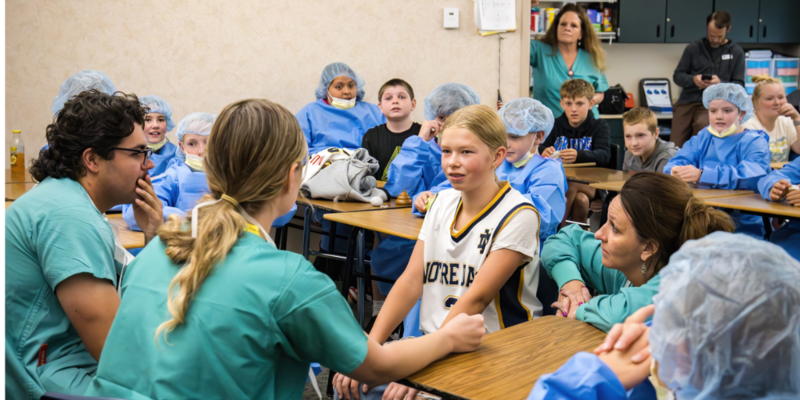
Several students said they were interested in the medical field after the experience and others said they discovered that this kind of thing was definitely not for them.
"Today we learned all about the body systems and what they do. We also got to pretend we were in the emergency room working on a patient. Then we got to do a very realistic surgery. In the surgery we used a scalpel to cut a pretend body open and get out all the stuff. In the pretend body that we cut open, finally, we got to do stitches and staples. It was super fun! The blood was VERY realistic," Sixth Grader Lara Portlock said.
